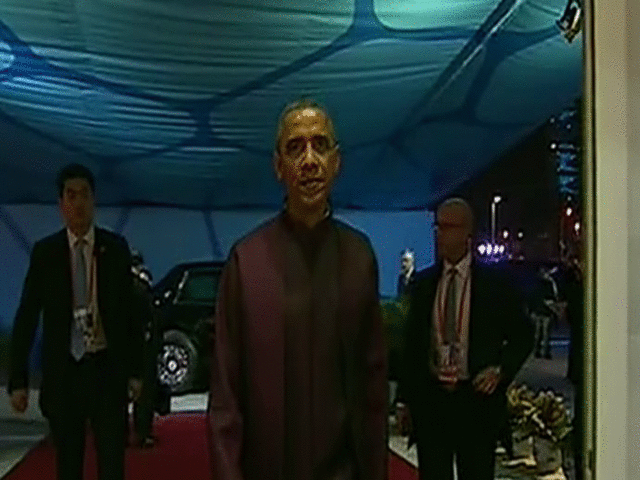:ManafortSideeye:
:robertmuelllerumad:
It Ain’t Easy Getting a FISA Warrant: I Was an FBI Agent and Should Know
By
Asha Rangappa
Monday, March 6, 2017 at 3:19 PM
In his latest round of twiplash, President Trump on Saturday leveled a very serious accusation: that President Obama had personally ordered the
“tapping” of telephone lines in Trump Tower in the months leading up to the November 2016 election. His tweets (scarily) reveal more about what he believes the office of the President is capable of than the reality of what the law allows. As someone who obtained FISA warrants while conducting counterintelligence investigations for the FBI, I can attest to the fact that they not only don’t involve the White House, but the process includes too many layers of approval to be granted without strong evidence.
There are two ways to obtain a wiretap – also known as electronic surveillance – on U.S. persons (citizens and permanent residents), and both include the courts. For criminal investigations, the FBI can seek a warrant under Title III of the U.S. criminal code by showing a federal court that there is probable cause to believe the target has engaged, or is engaging in, criminal activity. This is a fairly high standard because of a strong presumption in favor of our Fourth Amendment right to privacy, and requires a showing that less intrusive means of obtaining the same information aren’t feasible.
The standard for electronic surveillance for foreign intelligence purposes, though, is a little lower. This is because when it comes to national security, as opposed to criminal prosecutions, our Fourth Amendment rights are balanced against the government’s interest in protecting the country. The Foreign Intelligence Surveillance Act (FISA) allows the FBI to get a warrant from a secret court, known as the Foreign Intelligence Surveillance Court (FISC), to conduct electronic surveillance on U.S. persons if they can show probable cause that the target is an “agent of a foreign power” who is “knowingly engag[ing]…in clandestine intelligence activities.” In other words, the government has to show that the target
might be spying for a foreign government or organization.
But even under this standard, it’s not like the FBI can just decide to stop by a FISC to get a FISA warrant after going through the McDonald’s drive-thru for lunch. To even begin the process leading to a FISA, the FBI has to follow several steps outlined in the Attorney General Guidelines, which govern FBI investigations. First, the FBI has to conduct a “threat assessment” in order to establish grounds for even opening an investigation on potential FISA subjects. If a threat exists, the FBI must then formally open an investigation into possible foreign intelligence activity.
What does this look like in practice? Well, say, hypothetically, that a group of U.S. persons seem to have not infrequent contact with diplomats known to be Russian spies, whom the FBI are already monitoring. (Pro-tip: While it’s possible that such contacts could be accidental – I mean, hypothetically, the Trump inner circle could be a riot to hang out with socially – spies, particularly Russian ones, are pretty good at what they do and don’t spend time with people unless there’s a good reason.) The FBI might determine that, if the U.S. persons have access to classified information or could otherwise be “developed” for intelligence purposes by a foreign spy service, a significant enough threat exists to open an investigation – this would require at least one layer of approval within the FBI, and possibly more if the investigation concerns high-profile individuals.
The case still wouldn’t be FISA bound. FISA warrant investigations can’t be opened “solely on the basis of First Amendment activities,” so mere fraternization, even with sketchy people, wouldn’t be enough. The FBI would have to gather evidence to support a the claim that the U.S. target was knowingly working on behalf of a foreign entity. This could include information gathered from other methods like human sources, physical surveillance, bank transactions or even documents found in the target’s trash. This takes some time, and, when enough evidence had been accumulated, would be outlined in an affidavit and application stating the grounds for the FISA warrant. The completed FISA application would go up for approval through the FBI chain of command, including a Supervisor, the Chief Division Counsel (the highest lawyer within that FBI field office), and finally, the Special Agent in Charge of the field office, before making its way to FBI Headquarters to get approval by (at least) the Unit-level Supervisor there. If you’re exhausted already, hang on: There’s more.
The FISA application then travels to the Justice Department where attorneys from the National Security Division comb through the application to verify all the assertions made in it. Known as “Woods procedures” after Michael J. Woods, the FBI Special Agent attorney who developed this layer of approval, DOJ verifies the accuracy of every fact stated in the application. If anything looks unsubstantiated, the application is sent back to the FBI to provide additional evidentiary support – this game of bureaucratic chutes and ladders continues until DOJ is satisfied that the facts in the FISA application can both be corroborated and meet the legal standards for the court. After getting sign-off from a senior DOJ official (finally!), a lawyer from DOJ takes the FISA application before the FISC, comprised of eleven federal district judges who sit on the court on a rotating basis. The FISC reviews the application in secret, and decides whether to approve the warrant.
Now, it’s true that since its inception in 1978, the FISC has approved the vast majority of the over 25,000 FISA applications it has reviewed – some estimates put the number at over 99 percent. But that’s not surprising given the extensive process described above. In fact,
if some reports are true that the initial FISA applications submitted to the FISC were rejected, prompting the FBI and DOJ to change its targets to the Russian banks doing business with Trump associates rather than the associates themselves (which would only require showing probable cause that the banks are a “foreign power,” which by definition they are), then a FISA application for Trump Tower, if one exists, would have been subject to even more scrutiny than would normally be the case.
In short, the FISA warrant process is designed to protect against the very abuse of power that the President has accused his predecessor of exercising. You could even say that FISA applications go through an “extreme vetting” process before being granted – something that the Trump administration ought to support.
Image: Spencer Platt/Getty
@DonKnock @SJUGrad13 @88m3 @Cali_livin @Menelik II @wire28 @smitty22 @Reality @fact @Hood Critic @ExodusNirvana @Blessed Is the Man @THE MACHINE @OneManGang @dtownreppin214 @The Taxman @JKFrazier @tmonster @blotter @BigMoneyGrip @Soymuscle Mike




















